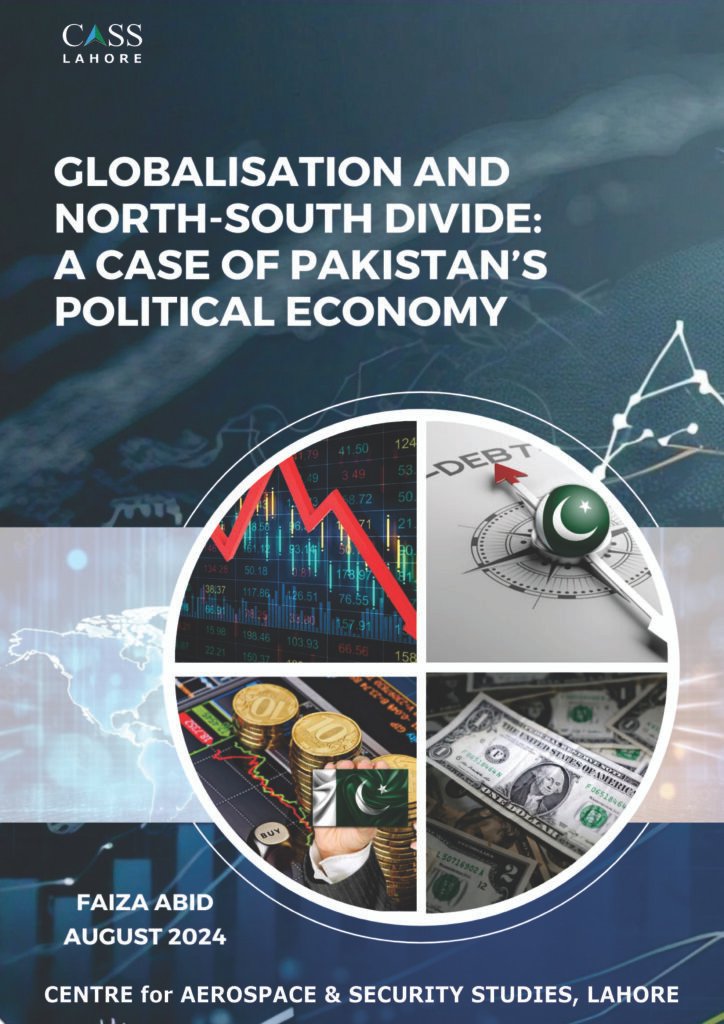GLOBALISATION AND NORTH-SOUTH DIVIDE: A CASE OF PAKISTAN’S POLITICAL ECONOMY

ABSTRACT
Globalisation, often celebrated for promoting economic growth and cross-border connectivity, has also contributed to reinforcing economic disparities between the Global North and South, perpetuating the historical divide between affluent and developing nations. For Pakistan, globalisation has presented both opportunities, such as access to international markets and technological advancements, and challenges, particularly in terms of economic stability. While it has opened avenues for trade and development, it has also exposed the country to external economic shocks, increased debt burdens, and created structural dependencies on foreign aid and financial assistance. This paper investigates the North-South divide through the lens of Pakistan’s political economy, examining how globalisation has shaped its developmental trajectory. The paper highlights the role of international financial institutions, particularly the IMF, in exacerbating fiscal instability through conditionalities tied to financial programmes, which often mandate austerity and privatisation measures. Such interventions have led to recurrent debt cycles, illustrating a form of economic dependence. The paper argues that there is an urgent need for policy reforms aimed at reducing reliance on external support and fostering sustainable, self-reliant economic growth.

Faiza Abid
CASS LAhore

The Centre for Aerospace & Security Studies (CASS) was established in July 2021 to inform policymakers and the public about issues related to aerospace and security from an independent, non-partisan and future-centric analytical lens.


